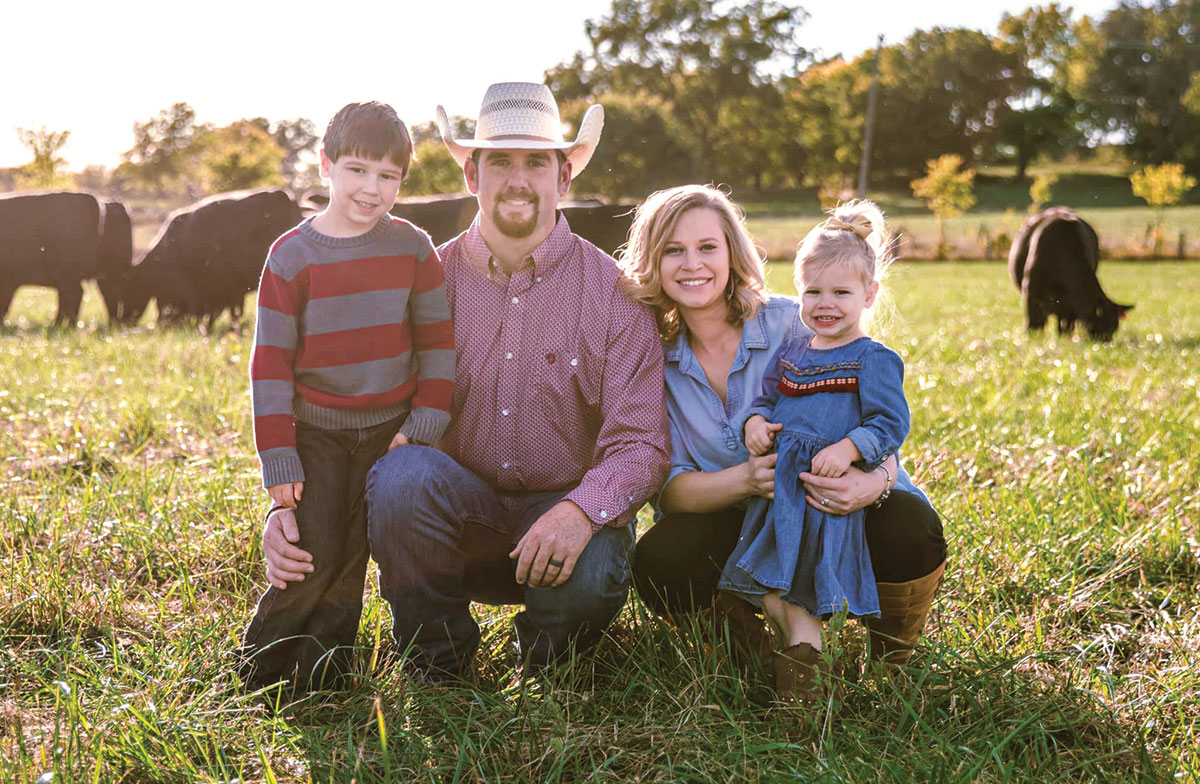 Married 37 years, Bill and Cathy Dalton have lived on their 80-acre ranch in Douglas County, near Ava, Mo., for 16 years.
Married 37 years, Bill and Cathy Dalton have lived on their 80-acre ranch in Douglas County, near Ava, Mo., for 16 years.
Horses play a big part in Dalton Ranch. They currently have 30 horses. That includes colts, broodmares and studs. Bill said their horse operation “is not very big and hopefully getting smaller. The horse market isn’t very good and I just got tired of going. I’ve had horses pretty much my whole life.”
He said there are lots of things to consider when buying a horse. Bill stressed the importance of good legs, good feet, breeding and bloodlines.
In 2012, they showed horses in the South Central Association in Missouri. Before that, they showed in the NCHA (National Cutting Horse Association).
For the past 16 years Bill has trained horses for other people. When selecting a trainer, he recommended, “You should watch how I handle horses. You need to make sure your horse is not going to be abused. Talk to people. Find out what kind of trainer you’re going to, because I’ve known a lot of trainers over the years that were very abusive.” He added, “Horses don’t need to be overridden. They are like little kids. They learn at a certain pace and if you get them too tired, then they don’t want to learn.”
“The personality of a horse is very important,” Bill stated. He explained, “When you show a horse, that’s what comes out in them, especially the cutting horses.”
Cathy commented, “A lot of that is how they’ve been trained, handled and their breeding.”
Breeding and bloodlines play an important role. Cathy said, “Bill’s trained and showed horses for years. He’ll have somebody bring him a horse and say, “Make this a cutting horse” and he knows they’re not bred for that. I try to explain that it’s like bringing a poodle and saying, ‘Gather the cows.’ There are different horses for different things.”
The Daltons have held several ‘cutting’ events and practices at their barn. One thing leads to another. Bill said, “I never had goats in my life until we were training cutting horses. Cattle are pretty high and wear out to practice on pretty quickly. So we started using goats. There’s a guy in Texas who uses goats to train cutting horses. That’s how I got started in the goat business. We bought some and worked them with the horses for a while. We saw how well they ate brush, so we started getting a few goats.”
They’ve been raising goats for about 10 years and now have 150. Most are meat goats, but they have a few Nubian milk goats.
He stated, “The goats have been more profitable than cattle, on a smaller acreage. Goat prices got higher and you can sell a kid for $2 a pound. It’s a way to make a living.”
He added, “It was the same with the sheep until this past year, but they’ve dropped quite a bit for some reason.”
The Daltons have Katahdin, Dorper and a few St. Croix sheep. They have 250 ewes. They have never worked the sheep with horses.
The best advice Bill has for someone wanting to raise sheep or goats is “do a lot of research before you jump in, because we’ve learned a lot of things the hard way.”
“Goats need more brush and things like that to eat, not just grass,” Bill explained. He added, “They won’t get wormy as bad. They do a great job of killing brush.”







